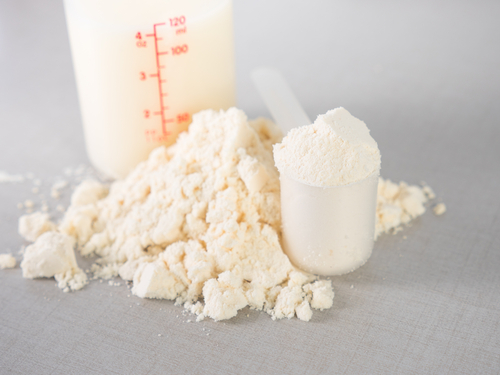Soy-based formula may cause changes in girls' reproductive system
IANS Mar 14, 2018
A new study has found that newborn girls who are fed a soy-based formula are more likely to experience changes in the endocrine system due to the oestrogen-like compound, genistein that interferes with hormonal development.

Newborn girls who consume soy-based formula are more likely to experience "subtle differences" in some reproductive-system cells and tissues, compared to those who use cow-milk formula or are breastfed, researchers say. Mothers who do not breastfeed have long used soy formula as an alternative to cow-milk formula, often because of concerns about milk allergies, lactose intolerance, or other feeding difficulties.
However, soy protein contains high amounts of genistein -- an oestrogen-like compound, which can alter the body's endocrine system and potentially interfere with normal hormonal development, the researchers said. "Modern soy formula has been used safely for decades. However, our observational study found subtle effects in estrogen-responsive tissues in soy-fed infants, and we don't know if these differences are associated with long-term health effects," said lead author Margaret A. Adgent, from the Vanderbilt University in the US.
Its effect was seen more on girls. Compared to girls fed on cow-milk formula, those fed soy formula had developmental trajectories consistent with responses to oestrogen exposure. Vaginal cell maturational index was found higher and uterine volume decreased more slowly in soy-fed girls, both of which suggest oestrogen-like responses, the findings published in the Journal of Clinical Endocrinology and Metabolism showed.
These differences, however, were subtle and not a cause for alarm, but also reflect a need for further research on the long-term effects of soy-based milks. According to American Academy of Pediatrics, soy formula is indicated for infants with hereditary disorders that make them unable to properly digest milk, such as galactosemia and the rare condition hereditary lactase deficiency.
It also recommends soy formula "in situations in which a vegetarian diet is preferred", but does not recommend soy formula for pre-term infants. For the study, the team included 283 infant-mother pairs. Out of these 102 infants were exclusively fed on soy formula, 111 on cow-milk formula, and 70 on breast milk. Infant boys were repeatedly measured up to age 28 weeks and infant girls up to age 36 weeks.
-
Exclusive Write-ups & Webinars by KOLs
-
Daily Quiz by specialty
-
Paid Market Research Surveys
-
Case discussions, News & Journals' summaries